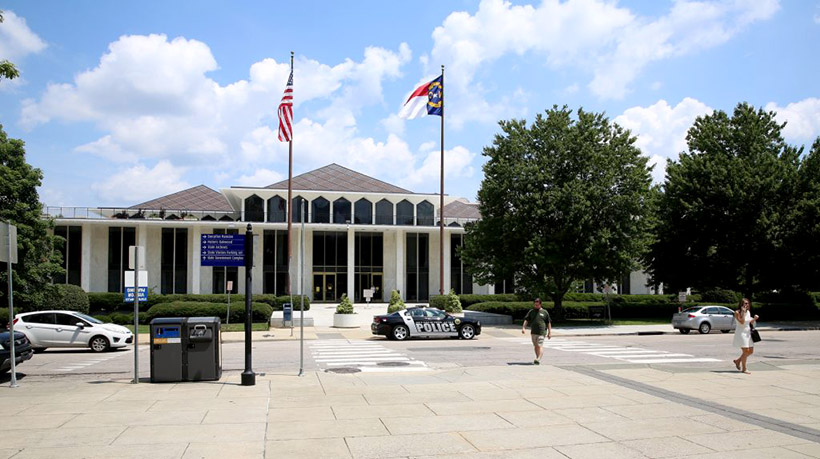Publisher's note: This post appears here courtesy of the Carolina Journal, and written by Lindsay Marchello.
The N.C. Legislative Building in Raleigh. | Photo: Don Carrington/Carolina Journal
The N.C. House voted Tuesday, Aug. 20 to concur with
House Bill 554, which drew pushback from industry groups over a provision making it easier for some to obtain a funeral director's license.
In a 83-31 vote, the House concurred with the Senate on the bill, Funeral Practice Licensure Technical Corrections. The bill heads to Gov. Roy Cooper for his signature.
What was once a technical correction bill became a bit controversial when lawmakers added a measure allowing for provisional funeral director licenses.
The original bill made technical and clarifying changes to funeral service license exam requirements, outlined rules for disposing of pacemakers, and required crematory licenses to comply with federal regulations, among other things.
While the bill was in the works, the N.C. Board of Funeral Service stopped issuing licenses until the matter was resolved. More than 20 applicants have been waiting for months for the technical correction bill to pass so they can get their licenses.
The N.C. Board of Funeral Service didn't immediately respond to a request for comment.
Senate lawmakers added an
amendment to the bill to allow for a provisional license in an attempt to make it easier for out-of-state licensed funeral directors and others working in the field to more easily get a state license. To qualify for a provisional funeral director license, an applicant must:
- Pay a $500 fee for the provisional license
- Have an undergraduate degree in any field, an associate of applied science degree in any field, or a diploma in funeral directing from a board-approved curriculum at an accredited college of mortuary science
- Be of good moral character and at least 18 years old
- Have a certified resident traineeship, or be eligible for certification as a resident trainee, or have at least five years' professional experience under the supervision of a licensed funeral director
"This bill would expand access to a licensed occupation in North Carolina to credentialed practitioners from other states, giving them time to satisfy the state's set of criteria while being able to earn a living in their field in the meantime," said
Jon Sanders, director of regulatory studies at the John Locke Foundation.
The amendment drew criticism from industry groups and funeral directors, who claimed the provisional funeral director license would lower the standards for funeral directing and could potentially harm consumers.
To assuage these concerns, lawmakers added another
amendment requiring provisional licensees to have the same supervision as a resident trainee. The amendment also prohibits a provisional licensee from acting as a funeral director, which means they can't serve as a location manager or sell pre-need contracts.
Damien Shell, one of the more than 20 funeral director licensee applicants waiting for their license, had spoken out against the bill at a committee hearing, but he was positive about the bill's passing.
"This is a good day for the 25 individuals who have been waiting for their license, some since November 2018," Shell said in an emailed statement.
"It has been a long endeavor for us, but I am glad this part is finished. However, there is still more work to be done."
Shell said that while common ground was found, he's still concerned about the provisional licensure aspect because of how the amendment shortened the amount of time, financing, and education it takes to earn a license.
"Now we must see the outcome of the new provisional licensure that has now been added," Shell said.
Sanders said the bill was only controversial to a few and amounted to a minor reform to the regulatory structure.
"It remains for future sessions of the legislature to bring much-needed significant restructuring of North Carolina's occupational licensing regime," Sanders said.


























